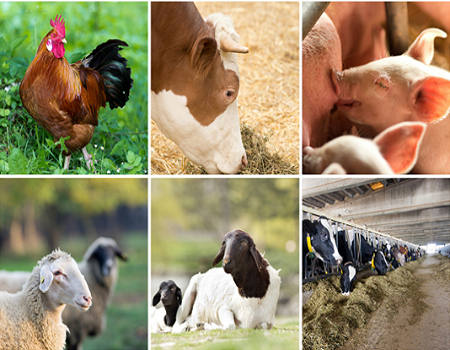As a way of upgrading the feedlot, crossbreeding and meat value chains in Edo State, the Economic Community of West African States Support Programme for Livestock Marketing in West Africa (ECOWAS-PACBAO 11) project Tuesday trained farmers on the potential of livestock and meat value chain.
Speaking at the programme which is in collaboration with Edo Government, the Commissioner for Agriculture and Food Security, Mr Stephen Idehenre, said the training was geared toward building the capacity of livestock farmers on modern technological ways of production to meet the demand for protein in the state.
Idehenre said that the focus of the training would be on feedlot development, meat handling, processing, marketing and transportation so as to ensure healthy and wholesome meat for the people.
According to him, the economic growth and sustainability of Edo state and indeed Nigeria can only be enhanced by a robust agricultural revolution framework as well as capacity building for livestock actors.
ALSO READ FROM NIGERIAN TRIBUNE
- Nurse Holds Doctor Hostage In OAU Teaching Hospital, Resident Doctors Plan Strike
- Woman’s Corpse, Unconscious Man Found Inside Office In Aba After Four Days
- Hoodlums Attack Lagos Governor’s Press Crew Bus In Tinubu’s Convoy, Two Injured
- [BREAKING] #EkitiDecides2022: INEC Declares APC’s Biodun Oyebanji Winner Of Guber Poll
- Top 10 Business Ideas In Nigeria You Can Start With 100,000 Naira
- 2023: Kwankwaso Will Not Be Deputy To Obi —NNPP
He advised the farmers to cooperate with the resource persons and learn modern ways of producing feedlot, meat processing as well as the creation of wealth from animal by-products.
The team leader of ECOWAS-PACBAO 11 project, Dr Adetunji Jolaosho, disclosed that the programme was funded by the Swiss development cooperation through ECOWAS and the Edo government.
He said that meat consumption in Edo State is mostly ruminants which are sheep and goats, adding that an estimated 2,000 sheep and goats are consumed daily in Benin City alone for a total of 800,000 per annum.
He added: “Unfortunately, less than 30 percent of this number is produced in the state. This means that the people who sell these sheep and goats go to neighbouring states to source for the animals.”
With support from ECOWAS, he expressed optimism that livestock productivity and income will increase for smallholder and large-scale farmers.
In his paper presentation titled the economic value of ruminants feedlot for small and medium scale livestock farmers, Kuku said cows can be raised within a space of 100 by 100 square meters of land.
According to him, there are enough cassava peels, groundnut leaves and corn stock all over the place wasted that can be used to feed these animals.






